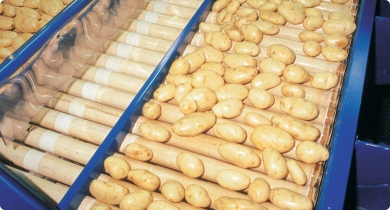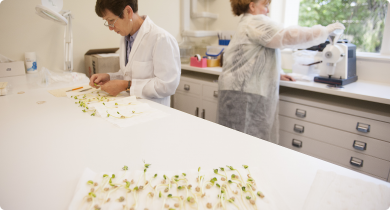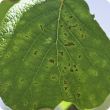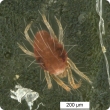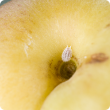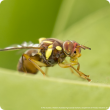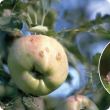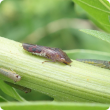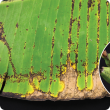Plant biosecurity
The mission of Western Australia's plant biosecurity programs is to safeguard plant resources from exotic and established pests and diseases. The Department of Agriculture and Food, Western Australia (DAFWA) has adopted a 'biosecurity continuum' approach with pre-border, border and post-border biosecurity strategies as integral components of this approach.
The aim of DAFWA’s approach is to identify key threats to productivity, sustainability and market access and outline preventive and response strategies.
The management of biological risks to market access, product safety, quality, productivity and sustainability is a shared responsibility and can be managed together and cost-effectively by means of partnerships between industry, community and government.
DAFWA’s biosecurity policies and operations are targeted to facilitate safe trade, tourism and commodity movement whilst reducing exposure of the State's plant resources to exotic biological risks.
Filter by search
Filter by topic
- Crops (54) Apply Crops filter
- (-) Remove Pests, weeds & diseases filter Pests, weeds & diseases
- (-) Remove Horticulture filter Horticulture
- Diseases (33) Apply Diseases filter
- Fruit (28) Apply Fruit filter
- Vegetables (18) Apply Vegetables filter
- Pests (16) Apply Pests filter
- Fungi (15) Apply Fungi filter
- Pest insects (12) Apply Pest insects filter
- Potatoes (11) Apply Potatoes filter
- Grapes & wine (10) Apply Grapes & wine filter
- Citrus (10) Apply Citrus filter
- Nursery & cutflowers (9) Apply Nursery & cutflowers filter
- Tomatoes (7) Apply Tomatoes filter
- Table grapes (7) Apply Table grapes filter
- Quarantine (6) Apply Quarantine filter
- Viruses & virus-like (6) Apply Viruses & virus-like filter
- Emergency response (6) Apply Emergency response filter
- Bacteria (5) Apply Bacteria filter
- Wine grapes (4) Apply Wine grapes filter
- Bananas (4) Apply Bananas filter
- Minor fruits (3) Apply Minor fruits filter
- Onions (3) Apply Onions filter
- Importing to Western Australia (3) Apply Importing to Western Australia filter
- Agricultural emergency preparedness (3) Apply Agricultural emergency preparedness filter
- Agricultural emergency response (3) Apply Agricultural emergency response filter
- Crop diseases (3) Apply Crop diseases filter
- Intrastate movement (2) Apply Intrastate movement filter
- Mangoes (2) Apply Mangoes filter
- Garlic (2) Apply Garlic filter
- Stone fruit (2) Apply Stone fruit filter
- Biosecurity and Agriculture Management Act (2) Apply Biosecurity and Agriculture Management Act filter
- Biosecurity governance (2) Apply Biosecurity governance filter
- Capsicums and chillies (2) Apply Capsicums and chillies filter
- Mites & spiders (1) Apply Mites & spiders filter
- Sweet potato (1) Apply Sweet potato filter
- Livestock species (1) Apply Livestock species filter
- Pome fruit (1) Apply Pome fruit filter
- Importing plant and plant products (1) Apply Importing plant and plant products filter
- Beans (1) Apply Beans filter
- Bees (1) Apply Bees filter
- Leeks (1) Apply Leeks filter
- Livestock & animals (1) Apply Livestock & animals filter

